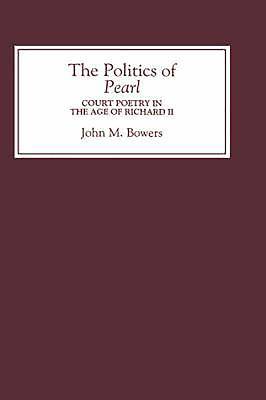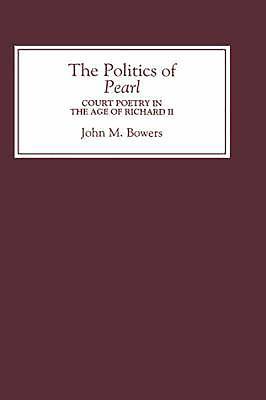
Bedankt voor het vertrouwen het afgelopen jaar! Om jou te bedanken bieden we GRATIS verzending (in België) aan op alles gedurende de hele maand januari.
- Afhalen na 1 uur in een winkel met voorraad
- In januari gratis thuislevering in België
- Ruim aanbod met 7 miljoen producten
Bedankt voor het vertrouwen het afgelopen jaar! Om jou te bedanken bieden we GRATIS verzending (in België) aan op alles gedurende de hele maand januari.
- Afhalen na 1 uur in een winkel met voorraad
- In januari gratis thuislevering in België
- Ruim aanbod met 7 miljoen producten
Zoeken
The Politics of Pearl
Economy, Society and Warfare in the 19th Century
John M Bowers
Hardcover | Engels
€ 177,45
+ 354 punten
Omschrijving
This is an entirely new and original reading of 'Pearl', placing the anonymous masterpiece in the context of the Cheshire coterie that flourished at the court of Richard II during the 1390s. The brilliance of its poetic construction has long been acknowledged, but here 'Pearl' is also shown to engage with the social, religious and political events of the late fourteenth century. The poem's defense of infant baptism is seen as countering Lollard criticism of the sacraments, its retelling of the Parable of the Vineyard as offering scriptural support to the aims of the Statute of Labourers. The poem's dazzling representation of aristocratic magnificence - jewelled crowns, gem-embroidered gowns, livery badges, civic processions, and monumental architecture - studied in this context, relates to the spectacular royal culture of one of England's most ambitious monarchs. The courtly elegy offered consolation after the death of Anne of Bohemia, while its vision of a royal child-bride figured in the intense national debate over the king's prospective marriage to the six-year-old Isabelle of France. Richard II's fall from power brought to an end not simply Cheshire privilege, but also a poetic tradition that produced some of the finest works of English literature, most notably 'Pearl' and 'Gawain and the Green Knight'. Professor JOHN BOWERS teaches at the Department of English at the University of Nevada at Las Vegas.
Specificaties
Betrokkenen
- Auteur(s):
- Uitgeverij:
Inhoud
- Aantal bladzijden:
- 264
- Taal:
- Engels
Eigenschappen
- Productcode (EAN):
- 9780859915991
- Verschijningsdatum:
- 2/11/2000
- Uitvoering:
- Hardcover
- Formaat:
- Genaaid
- Afmetingen:
- 164 mm x 241 mm
- Gewicht:
- 535 g

Alleen bij Standaard Boekhandel
+ 354 punten op je klantenkaart van Standaard Boekhandel
Beoordelingen
We publiceren alleen reviews die voldoen aan de voorwaarden voor reviews. Bekijk onze voorwaarden voor reviews.









